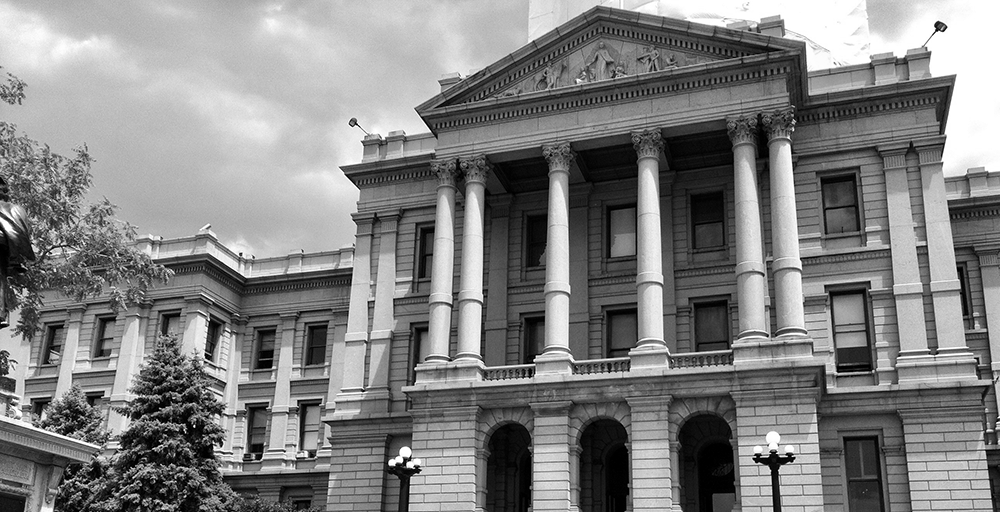On Wednesday, May 7, 2025, the Colorado General Assembly adjourned its 2025 legislative session. During the 120-day session, 657 bills were introduced, as well as 76 resolutions.
Here’s what you may have missed:
Energy
Governor Jared Polis (D) signed HB 1040 into law on March 31. This bill, introduced by Representative Alex Valdez (D), allows nuclear energy to be considered as a clean energy resource. This re-definition permits nuclear energy projects to receive grants through the US Department of Energy’s Advanced Nuclear Reactor Program.
This legislation has been introduced continuously in previous sessions but received bipartisan support during this year’s session. According to testimony from the sponsors, this newfound bipartisan support is a result of the need to identify new energy sources that both move the state away from fossil fuels while also have pathways for high-paying jobs for workers in the energy sector. It takes effect on August 6, 2025.
Labor
Lawmakers passed SB 5, introduced by Senator Robert Rodriguez (D), which revises the state’s Labor Peace Act and removes the requirement for a second election to negotiate a union security agreement clause in the collective bargaining process. However, Governor Polis vetoed the bill due to the inability of union and business leaders to reach a deal. Labor leaders plan to revive the bill next year.
The Legislature also passed SB 83, introduced by Senator Lindsey Daugherty (D). This measure removes the highly compensated worker exemption for non-compete agreements and non-solicitation clauses that restrict healthcare professionals from practicing in the state. This measure is still awaiting action by Governor Jared Polis.
Education
The Legislature passed numerous bills revising K-12 education during this past legislative session. HB 1192, introduced by Representative Anthony Hartsook (R), establishes financial literacy graduation requirements for high school students. This measure received bipartisan support and was signed into law by Governor Polis on May 23 and takes effect on August 6. This legislation places Colorado with 27 other states that require students to take a financial literacy course for high school graduation.
Governor Polis also signed SB 63 into law, which requires public schools to create policies governing library book challenges or bans. It also limits reviews of the same title to once every two years and only allows parents with a child in the school to challenge a book at that school. This measure passed with a safety clause and therefore takes effect immediately.
Budget
Governor Jared Polis signed into law a $43.9 billion spending plan in April, ending debate by lawmakers over how to close a $1.2 billion budget shortfall. This spending plan includes a reduction in transportation funding as well as funds for local governments and social programs.
The budget includes an increase of general fund spending for K-12 education by $150 million to begin the implementation of the new school finance formula that was passed last session.
Colorado’s budget situation will become increasingly difficult over the next few years. The state continues to be limited in how much tax revenue it can take in and spend due to the Taxpayer’s Bill of Rights (TABOR) and faces Medicaid over-expenditures that the state is required to cover.
Looking Ahead
Governor Jared Polis has until June 6 to act on legislation sent to him.
All eyes will be on Colorado for the remainder of the year as the state considers the implementation date of SB 205 (2024), the comprehensive artificial intelligence regulation bill passed last year. Governor Polis, state legislators, and industry leaders have expressed interest in delaying the current implementation date of February 1, 2026. During the waning days of Colorado’s legislative session, legislation was filed pushing back implementation to 2027. That bill was ultimately stalled did not pass. Now, the state legislature may reconvene for a special session on the matter. While no details of a potential session have been announced, Stateside will be monitoring the situation closely.
In addition to the potential special session, Colorado General Assembly’s interim committees will meet from May through December to study issues and recommend legislation.
Colorado will also hold its Coordinated Election on November 4, 2025, which includes several local races and ballot measures at the state, county, and local levels.
